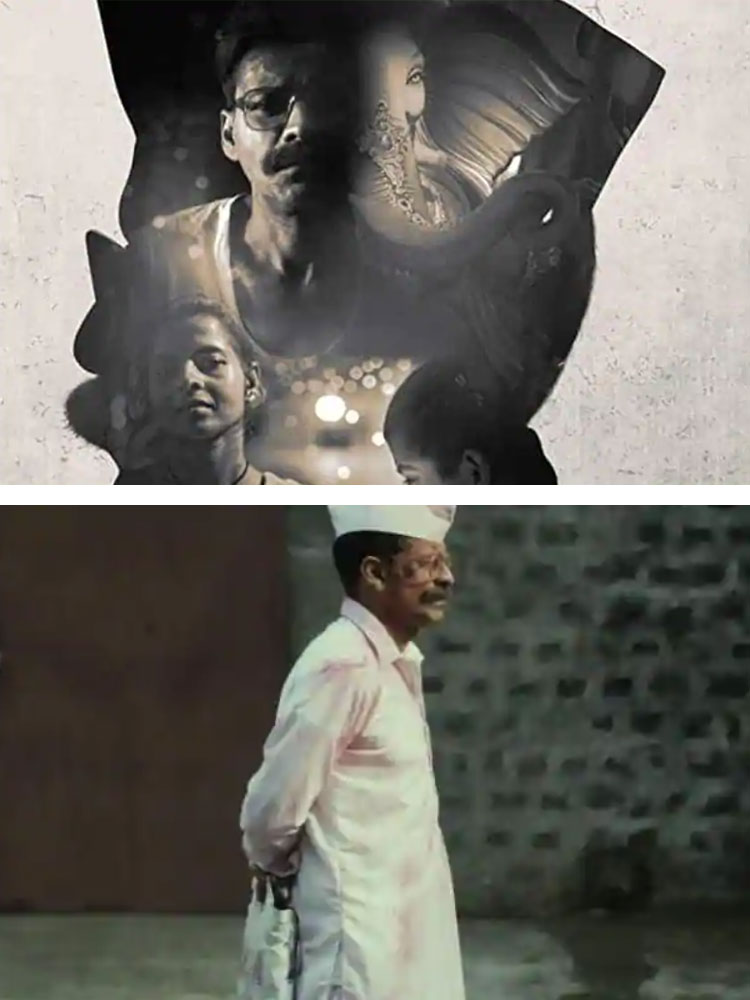
Bhonsle movie review: Manoj Bajpayee delivers acting masterclass, film a definitive word on 'insider-outsider' debate
Watch Video:
Bhonsle
Director - Devashish Makhija
Cast - Manoj Bajpayee, Santosh Juvekar, Ipshita Chakraborty Singh
Ganpath Bhonsle (Manoj Bajpayee) is ending perhaps the most meaningful relationship of his life as the film begins. He is doing it with utmost reservation; but retirement has crept upon this reticent cop. As he takes off his uniform, elsewhere, a sculptor is putting the final touches on a statue of his maker, ahead of Ganesh Chaturthi. The evocative first few minutes set the tone for Bhonsle -- a man straining against redundancy in a city where he has been nothing but an observer all his life.
Bhonsle is a film for our times. The visuals of migrants walking home as a country went into the lockdown with nary a care for the millions that powered its very structure are still raw. We locked ourselves inside our houses, blanketed by our privileges, leaving the 'outsiders' to find their way home. Bhonsle is set in a similar time in the Maximum City, when it had no place for people who helped build it. A local tough with political aspirations, Vilas (Santosh Juvekar), wants the migrants in the chawl to know that it is 'Maratha manoos first'. The struggle plays out with Ganesh Chaturthi as the backdrop as other chawl residents - Bhonsle included - watch from the sidelines, refusing to be anything more than a face in the crowd.
A man of few words - Manoj has perhaps 15 dialogues in the film, most of them incoherent mumbles - Bhonsle's relationship with the world outside his dreary 'kholi' is tenuous at best . In a powerfully shot dream sequence, he sees himself growing old and dying while carrying out his monotonous routine - cooking, washing, catching that drip on the roof. We, as the audience, can buy into that future, of a lonely old man who has long given up on any connection with the world that surrounds and subsumes him -- a fact that Makhija captures in a beautiful zoom-in shot.
Makhija and cinematographer Jigmet Wangchuk ensure that we are the fly on the wall as Bhonsle lives his daily life in the dirty 'kholi'. We cohabit with him in that room, with the out-of-tune radio, the crow on the sill, and a sense of foreboding growing with every minute. His daily chores are almost like a ritual, underlined by Wangchuk's long, unbroken shots. Bhonsle is as much a part of the room as his decrepit surroundings.
It is when a brother-sister duo comes to live in the room next door that he comes closest to any form of human contact. They are the 'outsiders', migrants from Bihar, while he is a well-established 'insider' who gets more respect for having donned the khaki. Like everyone, Sita (Ipshita Chakraborty Singh) gets the rub-off from Bhonsle too, her welcome visit to his room gets a muttered 'theek hai' from across a partially opened door. What starts as an interaction for self-preservation eventually transforms into a real, platonic relationship.
Makhija's world is grey; there are no heroes or villains here. If Bhonsle's silence as migrants suffer, like that of his neighbours, is damning in the beginning; Vilas is also a victim of his circumstances. He is rebelling against a class system that will not let him step beyond his station, as he lives in the shadows of high-rises.
